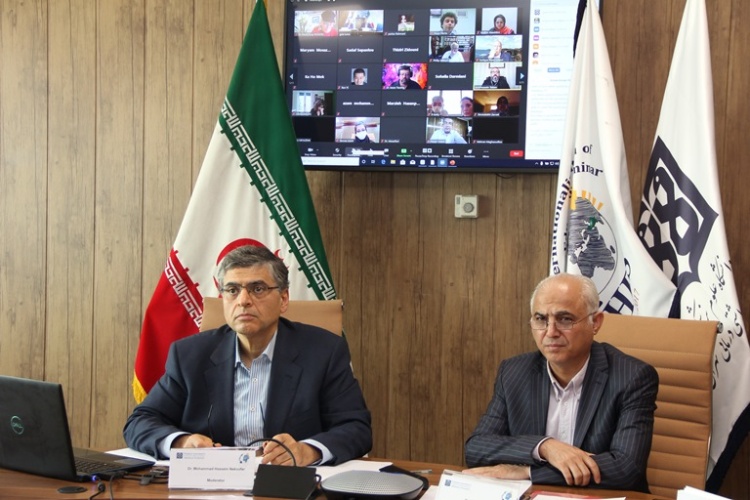Holding the First Panel of the Symposium-Webinar on “Internationalization of Higher Education During the COVID-19 Crisis”

The symposium-webinar on the internationalization of higher education during the COVID-19 Crisis began with a speech by Dr. Ramin Kordi, TUMS Vice Chancellor for Global Strategies and International Affairs.
Professor Philip G. Altbach of Boston College, Dr. Amir Hossein Takian of Tehran University of Medical Sciences, Professor Ka Ho Mok of Lingnan University (Hong Kong), Professor Ren Yi of the University of South Queensland, Professor Minke Tang of Beijing University of Chinese Medicine, Dr. James Otieno Jowi of the African Network for Internationalization of Education and Dr. Enrique López veloso of the University of Santiago de Compostela spoke at the first panel after Dr. Mohammad Hossein Nekoofar, the TUMS Director of International Relations, briefly introduced the speakers and the topic of their speech as follows:
-
“Professor Philip G. Altbach is a theorist who is a proponent of the physical transfer of students and the interaction of professors and students in the traditional way. He believes that the internationalization of higher education does not make sense without considering this approach; although, COVID-19 has completely changed the situation".
-
Dr. Amir Hossein Takian, one of the outstanding academics at TUMS, addressed the changes in higher education due to the prevalence of Coronavirus and considered technology as an effective factor in reducing the damage caused by this pandemic to the internationalization of higher education.
-
Professor Ka Ho Mok, as one of the experts in the field of sociology and political science, explained about the effects of COVID-19 on the internationalization of education and the Lingnan University's experience in dealing with COVID-19. He considered the provision of international education online a successful experience for the professors and students.
-
Professor Ren Yi, from the University of Queensland in South Australia, gave a speech entitled "International Education & Collaboration and Post-COVID-19". Explaining the current situation of universities and students in Australia, he spoke about the University of Queensland 's experience in online and e-learning and the importance of this form of education in reducing the economic damage caused by Coronavirus to Australian scientific centers.
-
Dr. James Otieno Jowi, in his presentation on COVID-19 and the Future of Internationalization in Higher Education, announced the formation of a network of universities on the continent after the Coronavirus epidemic in which stronger universities with better economic conditions support financially weaker scientific centers in terms of finance and equipment.
-
Professor Minke Tang dedicated his lecture to the experience of Beijing University of Chinese Medicine in International Higher Education and Pandemics.
-
Professor Enrique López veloso, from the University of Santiago de Compostela, gave a presentation entitled "Pandemia and Higher Education: lessons learned?". He stressed the need to make better use of the atmosphere created to push the goals of internationalization of higher education and the need to hold part of the training courses in person, especially in the field of medical sciences despite the current circumstances.
Dr. Nekoofar, referring to the holding of two discussion panels with the maximum participation of the participants in the first panel, stated:
“There were many practical tips and questions from the audience in the discussion panels, which had a significant impact during the first day of the symposium-webinar. Most of the attendees emphasized on the acceptance of the Coronavirus phenomenon and the compatibility and cohabitation of internationalization of higher education with this trend around the world”.
The TUMS Director of International Relations added: “The webinar revealed that there are many similarities between the TUMS' international activities and other universities around the world after the Coronavirus outbreak, and panelists described the impact of technology significant on saving higher education at this point in time”.
Dr. Nekoofar mentioned that the feedback about holding this symposium, received from participants were very positive and encouraging, and appreciated the efforts made by his colleagues at the TUMS Directorate of International Relations and also the executive team for organizing and holding the webinar.
Dr. Mohammad Hossein Nekoofar, at the end of the first day of the symposium-webinar stated that of the approximately 1,000 people who had registered to participate in the three-day program, nearly 300 (40 percent foreigners and 60 percent Iranians) attended the first day online.
It is worth noting that the video of the speech of all the speakers at the symposium-webinar is available on www.ihescovid19webinar.com.

Your Comment :